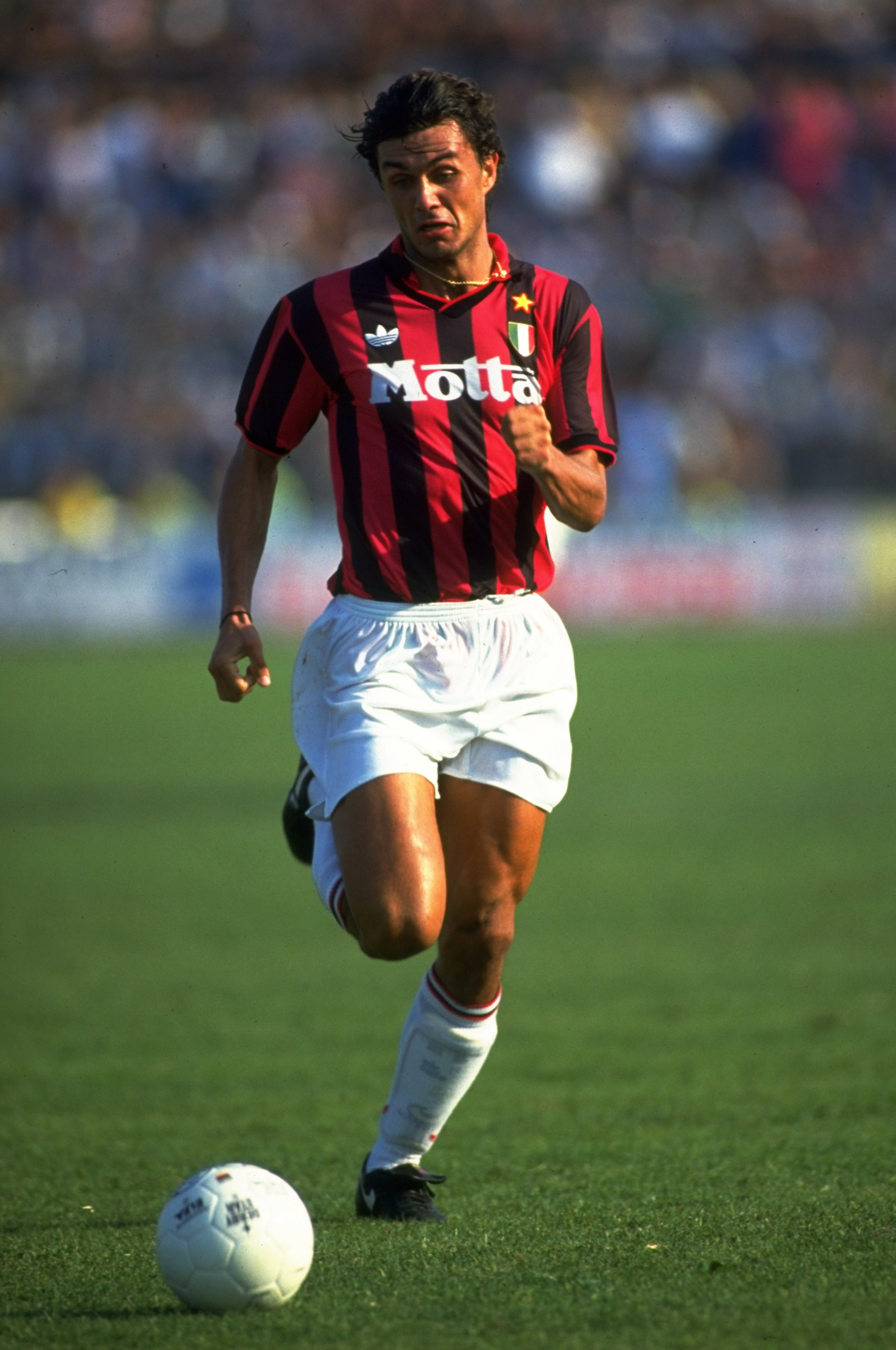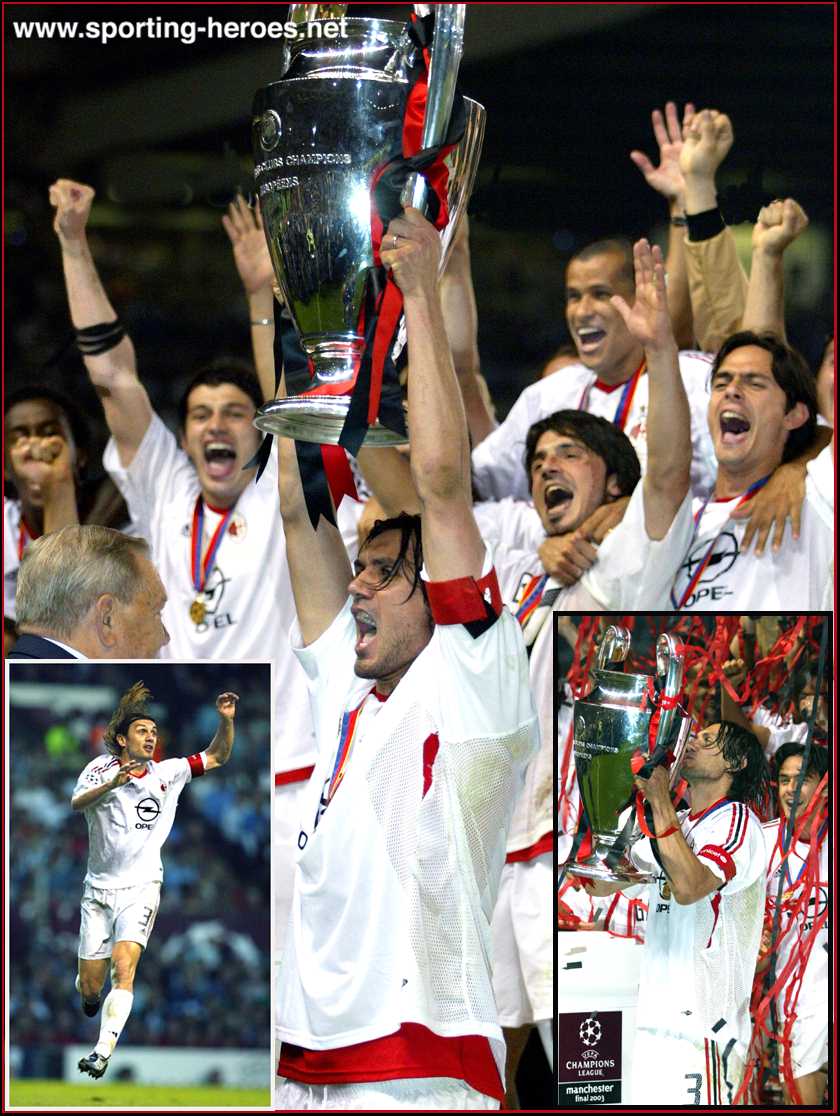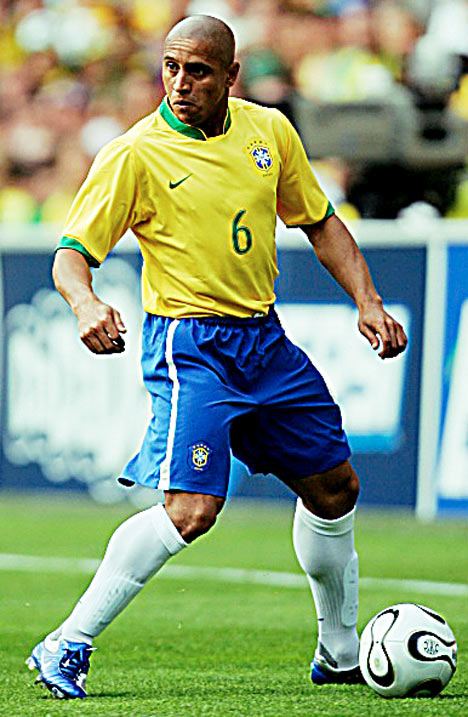

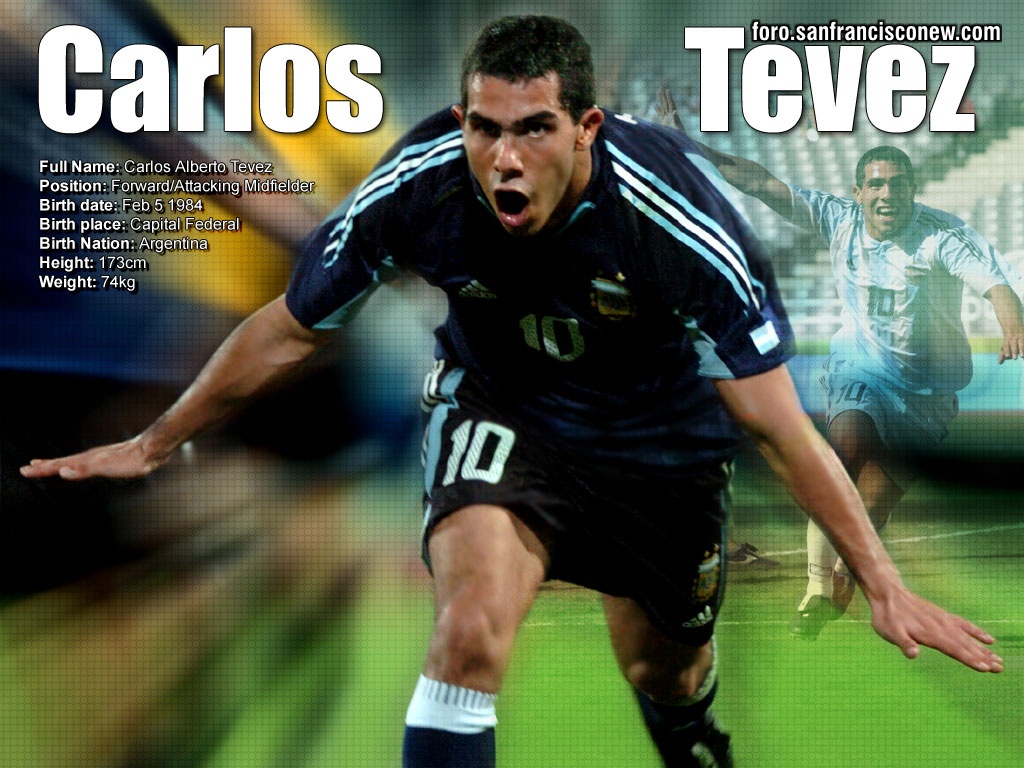
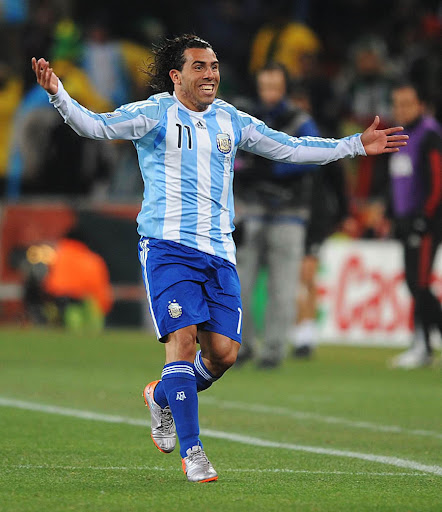

By looking at the bare statistics, you'd be forgiven for wondering what all the fuss was about with Carlos Tévez. Seven goals in 26 league games for West Ham United; 19 in 63 for Manchester United. Hardly the sort of figures that should have West Ham fans singing his name out when he returned to play against them or, for that matter, the Old Trafford faithful to keep on urging Fergie to 'Sign him up, sign him up sign him up' at every home game. Certainly not the kind of player you might expect to have a 'Welcome to Manchester' poster displayed in the city centre for.
Even for his national team the Argentine striker has been no more prolific - 8 goals in 51 appearances making him quite Heskey-like in his goals per game ratio. And yet, wherever he has played, Carlos Tévez has been adored by the followers of his team. And he has three times been South American Player of the Season, and Hammer of the Year at West Ham after scoring the goal that ensured their Premier League survival - ironically at Old Trafford in May, 2007. It might be because of his tremendous work ethic and willingness to chase all day long; it might be because of his sometimes sublime link-up play; it might even be because, with one or two notable exceptions, not many South Americans have adapted so readily to life at the top of English football. Whatever the secret, it resulted in Manchester City followers being delighted when he was one of Mark Hughes' recruits during the summer of 2009.
Even now, after just 5 goals in his first 14 matches for the club, there are few supporters who wouldn't have Tévez as one of the first names on the team sheet. Carlos Alberto Tévez was originally from Ciudadela in Buenos Aires - from a district known as 'Fuerte Apache'. The nickname that has followed the player since, Apache, was given him at his earliest youth football club, All Boys. After signing for the famous Boca Juniors club and then subsequently transferring to Corinthians, his all-action style attracted the foreign scouts but after that it all began to get complicated.
All the ramifications of the deal which Media Sports Investments made with West Ham will probably never come to light - and the legal minefield frightened off some of the clubs interested in the player and his compatriot Javier Mascherano. The situation became even more complicated when Tévez moved to Manchester United on a two year loan deal which then had the possibility of the Old Trafford team buying the player outright.
Despite being one of the crowd's favourites, Tévez clearly felt unappreciated by some quarters at United. Left out for too many of the big matches and seemingly facing a reluctance to negotiate a full transfer, he made it clear that he would move on in the summer of 2009. Nevertheless, he must have left Old Trafford with many good memories - notably scoring the opening penalty in the Champions League Final shoot-out victory over Chelsea.
Since arriving at Eastlands to wear the Manchester City shirt - for what was claimed in the press to be a British record fee of £47 million - Tévez's all-action style has earned him his usual praise from the supporters - still revelling, of course, in snatching him from their local rivals. Already helping guide Mark Hughes' side to their first major cup semi-final since 1981 - and scoring a fabulous goal against Arsenal in the 3 - 0 quarter final victory - Tévez's attitude on the pitch belies his claim in the Argentine press that he was so tired he would consider retiring from football after the South Africa World Cup were his team to take the trophy. Perhaps he was considering making more cumbia villera tracks with his band - apparently that's his favourite pastime outside of football.
Certainly City fans will be hoping that this was a quote taken out of context somehow and that - World Cup winner or not - Carlos Tévez is back playing for the club in the Champions' League next season. After all, they already know that, as far as he is concerned, bare statistics don't go anywhere near explaining his value to the team.
Even for his national team the Argentine striker has been no more prolific - 8 goals in 51 appearances making him quite Heskey-like in his goals per game ratio. And yet, wherever he has played, Carlos Tévez has been adored by the followers of his team. And he has three times been South American Player of the Season, and Hammer of the Year at West Ham after scoring the goal that ensured their Premier League survival - ironically at Old Trafford in May, 2007. It might be because of his tremendous work ethic and willingness to chase all day long; it might be because of his sometimes sublime link-up play; it might even be because, with one or two notable exceptions, not many South Americans have adapted so readily to life at the top of English football. Whatever the secret, it resulted in Manchester City followers being delighted when he was one of Mark Hughes' recruits during the summer of 2009.
Even now, after just 5 goals in his first 14 matches for the club, there are few supporters who wouldn't have Tévez as one of the first names on the team sheet. Carlos Alberto Tévez was originally from Ciudadela in Buenos Aires - from a district known as 'Fuerte Apache'. The nickname that has followed the player since, Apache, was given him at his earliest youth football club, All Boys. After signing for the famous Boca Juniors club and then subsequently transferring to Corinthians, his all-action style attracted the foreign scouts but after that it all began to get complicated.
All the ramifications of the deal which Media Sports Investments made with West Ham will probably never come to light - and the legal minefield frightened off some of the clubs interested in the player and his compatriot Javier Mascherano. The situation became even more complicated when Tévez moved to Manchester United on a two year loan deal which then had the possibility of the Old Trafford team buying the player outright.
Despite being one of the crowd's favourites, Tévez clearly felt unappreciated by some quarters at United. Left out for too many of the big matches and seemingly facing a reluctance to negotiate a full transfer, he made it clear that he would move on in the summer of 2009. Nevertheless, he must have left Old Trafford with many good memories - notably scoring the opening penalty in the Champions League Final shoot-out victory over Chelsea.
Since arriving at Eastlands to wear the Manchester City shirt - for what was claimed in the press to be a British record fee of £47 million - Tévez's all-action style has earned him his usual praise from the supporters - still revelling, of course, in snatching him from their local rivals. Already helping guide Mark Hughes' side to their first major cup semi-final since 1981 - and scoring a fabulous goal against Arsenal in the 3 - 0 quarter final victory - Tévez's attitude on the pitch belies his claim in the Argentine press that he was so tired he would consider retiring from football after the South Africa World Cup were his team to take the trophy. Perhaps he was considering making more cumbia villera tracks with his band - apparently that's his favourite pastime outside of football.
Certainly City fans will be hoping that this was a quote taken out of context somehow and that - World Cup winner or not - Carlos Tévez is back playing for the club in the Champions' League next season. After all, they already know that, as far as he is concerned, bare statistics don't go anywhere near explaining his value to the team.










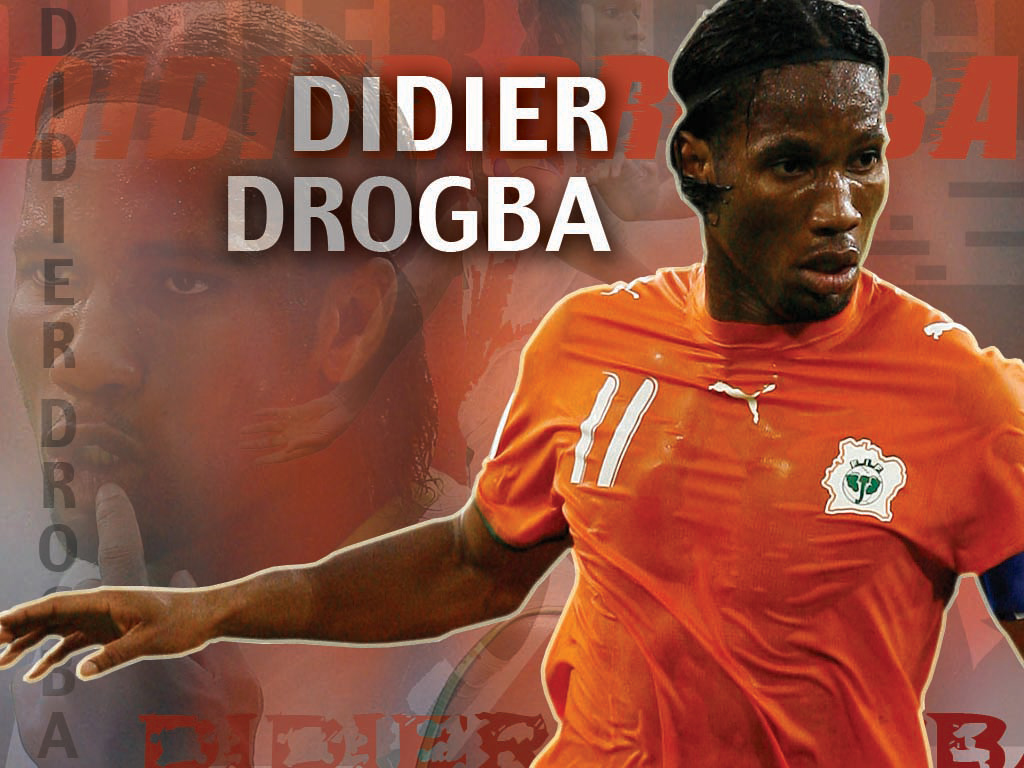

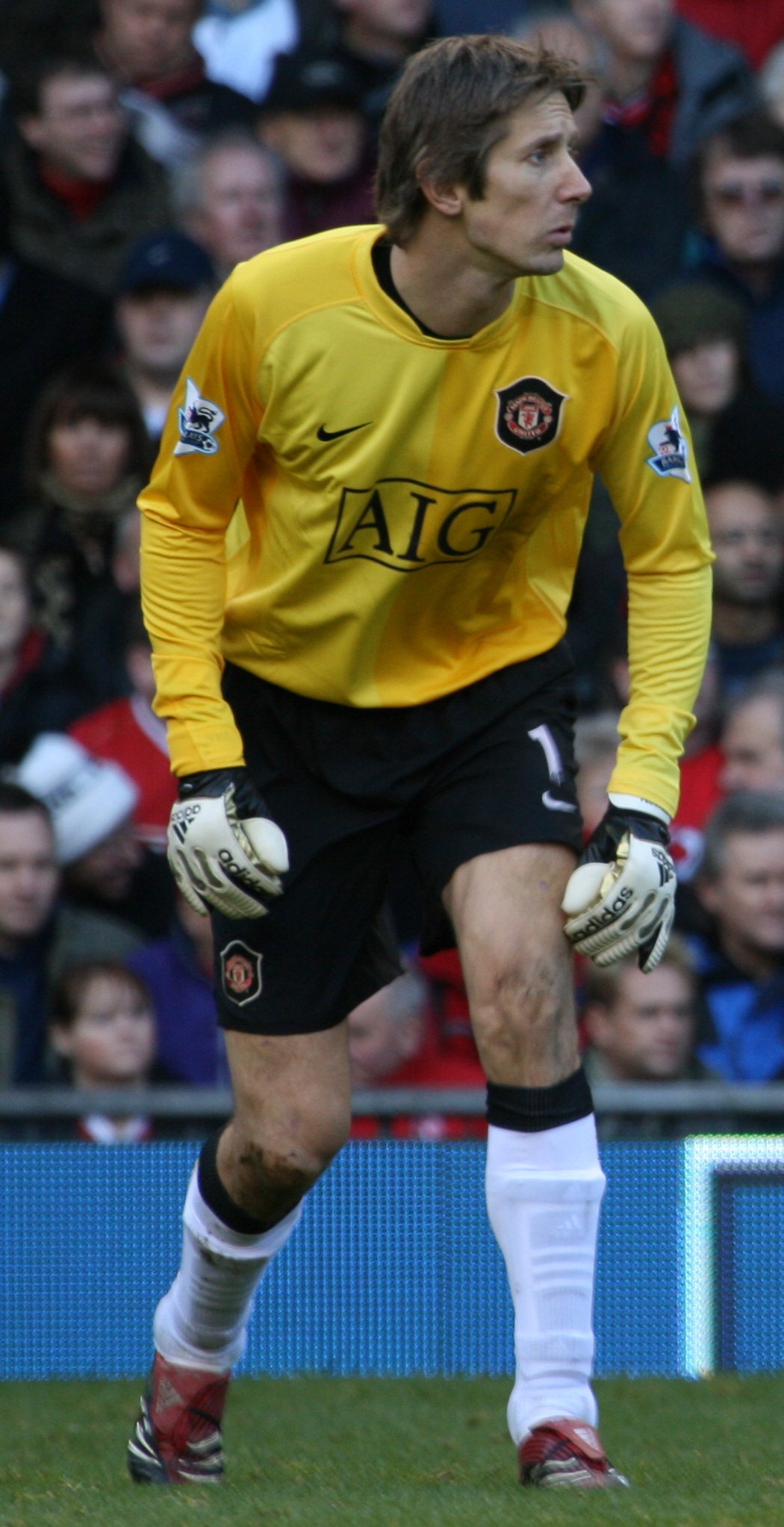


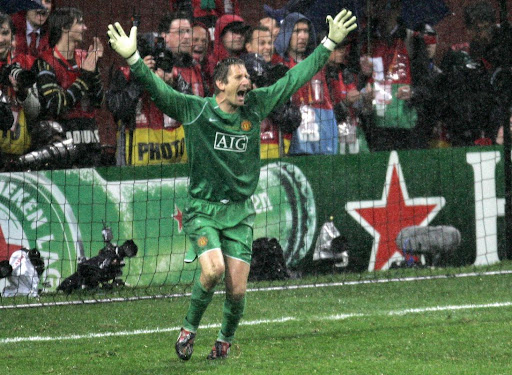 The globally renowned Manchester United are set to lose their veteran goalkeeper Edwin Van Der Sar as he pushes 40 years old. The Dutchman is considered one of the best keepers in the world and has won some of the toughest competitions in the world such as the Champions League and Premier League.
The globally renowned Manchester United are set to lose their veteran goalkeeper Edwin Van Der Sar as he pushes 40 years old. The Dutchman is considered one of the best keepers in the world and has won some of the toughest competitions in the world such as the Champions League and Premier League.




